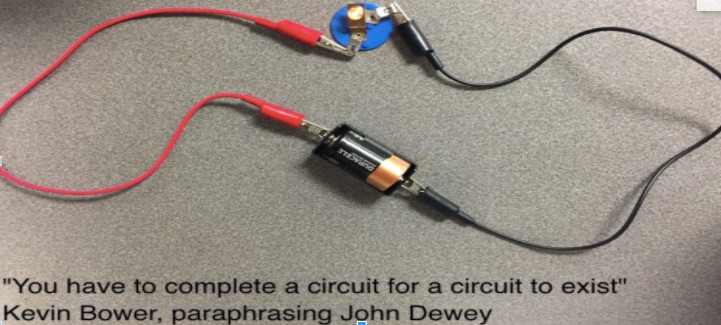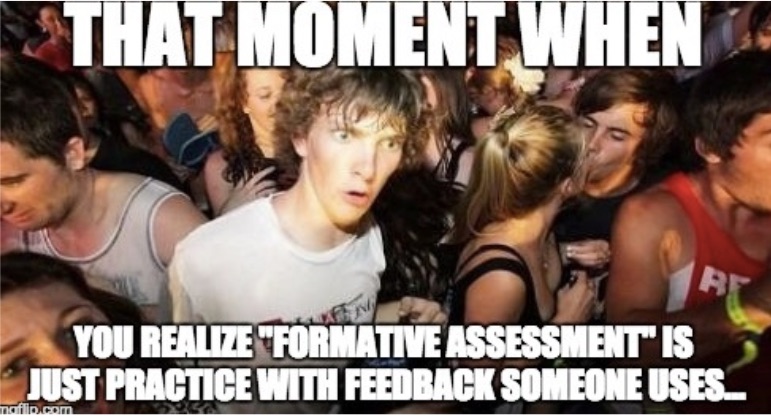I love Carol Dweck’s research on Mindset. Her perspective as a cognitive psychologist is very useful as we think about why students might “give up” on learning in specific contexts. Her team has solid evidence that a growth mindset is associated with good outcomes for students, and a “fixed mindset” isn’t a good sign for future learning.
[Side note: one of my favorite assessment authors, Rick Stiggins, talked about an idea very close to what Dweck calls Mindset in the article “Assesment Through the Students’ Eyes” in 2007, the same year Dweck published Mindset. It’s one of my favorite classroom assessment articles, and it’s inspiring, and it’s short. You should probably read that article rather than this blog post.]
But I wonder whether or not students who already HAVE a fixed mindset benefit from TALKING about mindset. The students who I know who have fixed mindsets (and there are plenty of terms for this: losing streaks, learned helplessness, etc.) ended up thinking this way because of powerful past experiences: usually repeated assessment events that showed them failure. They learned through these experiences that they won’t succeed no matter how hard they try. They learned that their efforts don’t make a difference.
Here’s my thought: since students “experienced” their way into fixed mindsets, they probably need to experience their way “out” of fixed mindsets. If a student is convinced that “no matter what I do, it won’t help,” it won’t help to talk with them about mindset. I don’t think any kind of “pep talk,” or conceptual conversation about Dweck’s theory, or any “cognitive intervention” will help change their mind. They may need to SEE success, to EXPERIENCE and BEHAVE their way into a new way of thinking. A teacher (a teacher they trust and have a good relationship with) has to convince them to try one more time, then get feedback from that teacher, then USE the feedback as they try again, and SEE that they “got better.”
Some teachers and I started talking about assessment as a “loop,” and teachers or students USING feedback as “closing the loop.”
The idea of “closing the loop” is at the heart of what some researchers and educators call Formative Assessment. Unfortunately, the perfectly fine term “formative assessment” has been used SO often to mean SO many different things that I worry it’s turning into “edubabble.” And that’s sad.
I believe Dweck is right: the way we think about our abilities matters. But when we’re convinced we can’t, we may have to experience and behave our way to a growth mindset instead of just talking about it.

